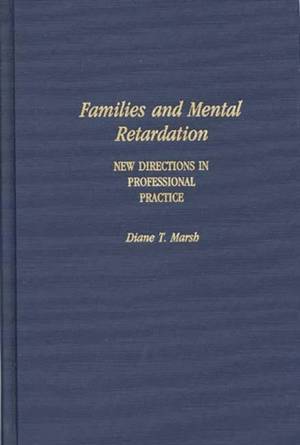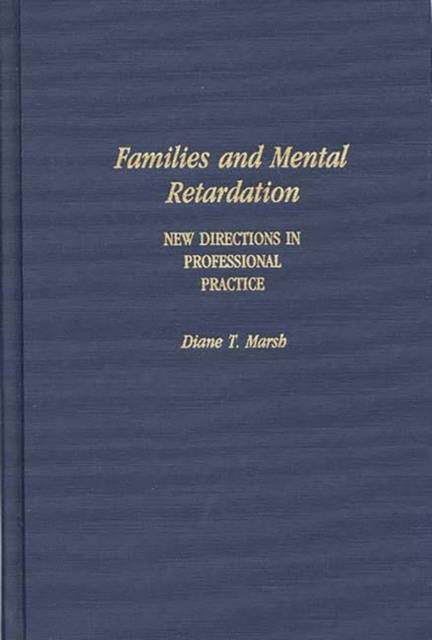
- Retrait gratuit dans votre magasin Club
- 7.000.000 titres dans notre catalogue
- Payer en toute sécurité
- Toujours un magasin près de chez vous
- Retrait gratuit dans votre magasin Club
- 7.000.0000 titres dans notre catalogue
- Payer en toute sécurité
- Toujours un magasin près de chez vous
Families and Mental Retardation
New Directions in Professional Practice
Diane T MarshDescription
Traditional pathology models do not provide a satisfactory framework for professional practice with families of people with mental retardation. Families and Mental Retardation is written from the perspective of a competence paradigm for professional practice, which offers a constructive alternative to the more prevalent pathology models of the past. The goal of professional practice is to empower families in coping with the catastrophic stressor of mental retardation. Such an approach recognizes the strengths and resources of families, which have often been minimized in the past, and fosters new collaborative modes of family-professional relationships.
Unique features include a consideration of life-span and family system and subsystem perspectives, as well as the inclusion of powerful personal accounts of family members. The volume is likely to be of special value to mental health and health care professionals, who often receive little training in mental retardation or family-professional relations, and who tend to apply a pathology model. In contrast, a competence paradigm is more prevalent in education.Spécifications
Parties prenantes
- Auteur(s) :
- Editeur:
Contenu
- Nombre de pages :
- 272
- Langue:
- Anglais
Caractéristiques
- EAN:
- 9780275940140
- Date de parution :
- 27-05-92
- Format:
- Livre relié
- Format numérique:
- Genaaid
- Dimensions :
- 152 mm x 229 mm
- Poids :
- 562 g

Les avis
Nous publions uniquement les avis qui respectent les conditions requises. Consultez nos conditions pour les avis.






